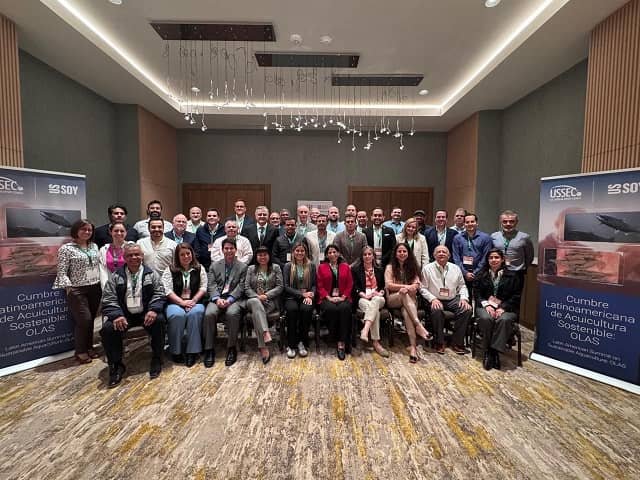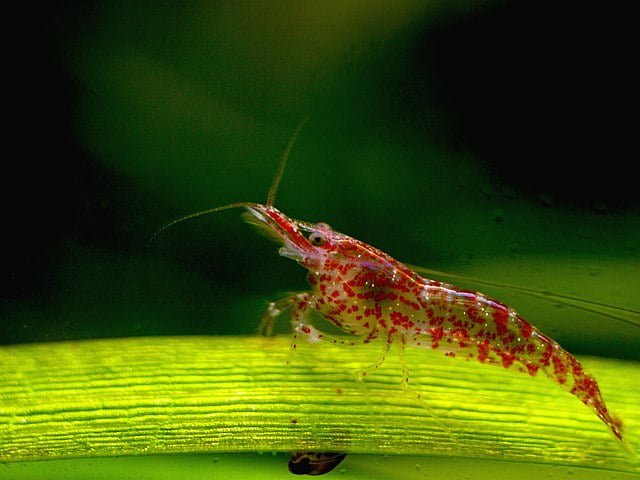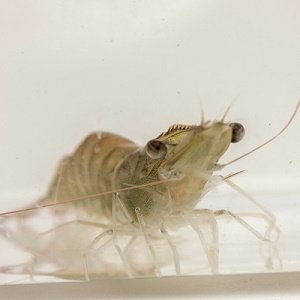
Panama City – With the strategic leadership of the U.S. Soybean Export Council (USSEC), leaders from Latin America’s aquaculture industry have marked a historic milestone with the official creation of the Latin American Organization for Sustainable Aquaculture (OLAS). The agreement was finalized during the Latin American Sustainable Aquaculture Summit, held in this city on June 18 and 19, 2025.
The summit, convened and facilitated by USSEC, brought together key figures from the shrimp, tilapia, salmon, and balanced feed sectors from across the region. The result was the establishment of OLAS, the first organization of its kind that integrates the main players in Latin American aquaculture to promote a common agenda focused on sustainability and global competitiveness. The organization will function as a permanent platform for technical cooperation, dialogue, and joint action.
A Regional Strategic Alliance
The establishment of OLAS is the culmination of a shared vision among the leading associations of the sector in Latin America. The agreed-upon common agenda will focus on four fundamental pillars:
- The promotion of good aquaculture practices and environmental sustainability.
- The strengthening of technical capabilities and innovation in key areas such as genetics, nutrition, and health.
- Regional integration through shared standards, technical exchange, and institutional cooperation.
- The positioning of Latin America as an international benchmark for high-quality aquaculture.
To carry out these objectives, an operational structure has been designed that includes thematic working groups in areas such as communication, trade, and regulation, as well as a framework for common performance indicators.
Leadership and the role of USSEC
USSEC was not only a catalyst for the creation of OLAS, but it also played a crucial role in designing its institutional structure and governance. Additionally, USSEC is leading the management of seed capital to ensure a solid operational base for the new organization.
During the event, the first Executive Committee of OLAS was elected, which is made up of representatives from seven countries:
- President: Gabriel Biguria (Guatemala, shrimp).
- Tilapia representatives: Carlos Robles and Alejandro Vargas (Colombia).
- Salmon representatives: Natalia Nuñez and Marcela Bravo (Chile).
- Shrimp representatives: Juan G. Balda (Ecuador) and Gabriel Biguria (Guatemala).
- Aquafeed representatives: Laura Pasculli (Colombia) and Héctor Morillo (Dominican Republic).
Jairo Amezquita, USSEC’s Aquaculture Program Manager for the Americas, was appointed as the Executive Delegate to OLAS, with the responsibility of coordinating technical and operational strategies between both entities.
A commitment to the future of aquaculture
OLAS is born to strengthen the sector’s global competitiveness through sustainability, technological innovation, and regional cooperation. To ensure its implementation, USSEC is also leading the management of seed capital that will allow for the establishment of a solid and sustainable operational base.
This is just the beginning of a new stage for aquaculture in Latin America. USSEC reiterates its commitment to the responsible development of the sector and celebrates this advancement alongside all the partners, companies, and professionals who made it possible.
Stay Always Informed
Join our communities to instantly receive the most important news, reports, and analysis from the aquaculture industry.
Contact
USSEC – U.S. Soybean Export Council
events@grupoagrinews.com
Editor at the digital magazine AquaHoy. He holds a degree in Aquaculture Biology from the National University of Santa (UNS) and a Master’s degree in Science and Innovation Management from the Polytechnic University of Valencia, with postgraduate diplomas in Business Innovation and Innovation Management. He possesses extensive experience in the aquaculture and fisheries sector, having led the Fisheries Innovation Unit of the National Program for Innovation in Fisheries and Aquaculture (PNIPA). He has served as a senior consultant in technology watch, an innovation project formulator and advisor, and a lecturer at UNS. He is a member of the Peruvian College of Biologists and was recognized by the World Aquaculture Society (WAS) in 2016 for his contribution to aquaculture.







